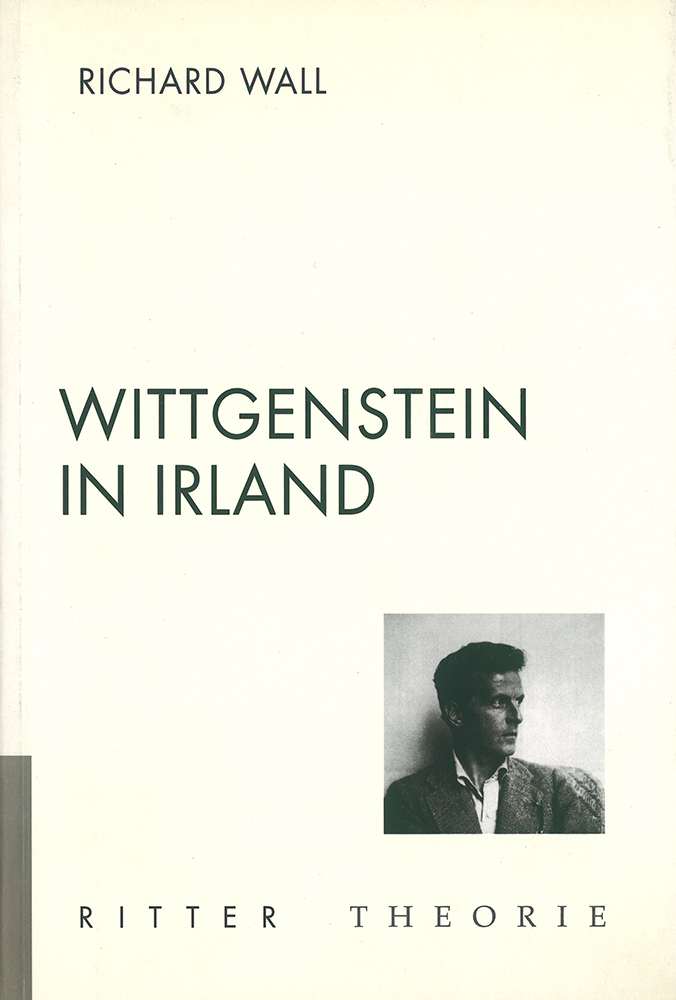Richard Wall
Wittgenstein in Irland
ISBN: 978-3-85415-260-6208 Seiten, zahlr. S/W-Abb., brosch., erschienen 1999
In seiner Studie unternimmt Richard Wall den ersten umfassenden Versuch, Wittgensteins Irlandaufenthalte, hauptsächlich in Dublin, Connemara und den Wicklow Mountains, zu dokumentieren und in einem allgemeinen historischen sowie in einem spezifisch-kulturhistorischen Kontext darzustellen.
Breiter Raum wird auch der Darstellung der irischen Landschaft eingeräumt, da Wittgenstein nur unter ganz bestimmten Bedingungen gut arbeiten konnte; in den kargen Landschaften Norwegens sowie Irlands entstand der größte Teil seiner Schriften.
In einem zweiten Abschnitt seiner Studie spürt Richard Wall den Auswirkungen von Wittgensteins Aufenthalt auf die Literatur nach; insbesondere auf den Roman Saints and Scholars von Terry Eagleton sowie auf die Dichter Richard Murphy und Francis Harvey; weiters wird der Beziehung zu George Thomson – Marxist und Professor für Griechisch an der Universität Birmingham –, der ein hervorragender Kenner der Blasket-Gaeltacht gewesen war, breiter Raum gewidmet.
Richard Wall dokumentiert in seiner Studie erstmals Wittgensteins Irlandaufenthalte.
Zahlreiche Abbildungen, Dokumente und Schwarz-Weiß-Fotos des Autors ergänzen den Text.
The Guardian / The Observer, 28.1.2001: (Zur engl. Lizenzausgabe)
George Steiner on a discreet jewel: the account of Wittgensteins visits to Ireland in “Philosophical Investigations” by Richard Wall.
Is it the ever-changing light and the dark seas? Ireland has long been home to solitudes and to the kind of logical and metaphysical play that breeds on solitude. The lineage stretches from Duns Scotus (the name is, in fact, a misnomer) to Bishop Berkeley and Beckett, that virtuoso of aloneness and negativity.
Wittgenstein‘s visits to Ireland began in 1936 and resumed in 1938. The years 1947 to 1949 found Wittgenstein spending months in Dublin and Co Wicklow. Time and again, he considered establishing himself in Ireland, possibly to practise psychiatric medicine. Much of the work which led to the Philosophical Investigations was done in Ireland.
Together with Norway, the Ahling Hotel in Dublin and almost inaccessible cottages near Galway proved to be Wittgenstein‘s refuge from what he felt to be the falsehood of his professorial existence in Cambridge. Consciously or not, Wittgenstein strove to recapture the condition of the hermits and visionaries who are recurrent in Irish legend and history. To be thought somewhat mad in western Ireland was to be made welcome.
Yet, as Richard Wall’s enchanting and perceptive record makes clear, Wittgenstein‘s actual visits had a context of intimacies. He was introduced to Irish life by his pupil, Maurice O’ Connor Drury, whom he discouraged from studying philosophy, ‘a dishonest and pointless occupation’, and directed towards medicine. Subsequently, he travelled with Francis Skinner. It is one of the as yet rare victims of Wall’s account to be perfectly calm and factual about this crucial, though undoutedly opaque, element in Wittgenstein‘s tormented private life. When Skinner died young in 1941, Rush Rhees reports Wittgenstein‘s conduct at the funeral as that of a ‘frightened wild animal’. From the time of David Pinsent’s death in 1918 onward, Wittgenstein‘s thirst for monastic isolation and the uttermost stripping bare of human contacts had, at its roots, a sense of tragic loss and of love gone to darkness.
Analogously, it was in deliberate counterpart to the truly immense wealth of his family background, to the opulence of his upbringing in late imperial Vienna, that Wittgenstein embraced asceticism and even destitution in regard to material circumstances. Roast chicken would not do when Drury made his master welcome. Porridge, vegetables and a boiled egg at supper would suffice. Rosroe, in the great shadows of Mweelrea Mountain, was at the time of his stay at the end of the world. Even today, the hamlet cannot be reached by public transport.
Virtually all of the incidents and obiter dicta narrated in this vignette have figured in previous biographies and memoirs. Yet they retain their unnerving strangeness. Unrecapturable to those who did not experience it directly, Wittgenstein‘s charisma, the sheer spell of his outwardly meagre presence must have been extraordinary. How else can one explain the impact on other men’s and women’s personal lives and memories of quite banal advocacies for decency, for truthfulness, for absolute scruple in the handling of language, a good many of which closely reflect Wittgenstein‘s imitation of the later Tolstoy? When, however, it comes to politics, a number of Wittgenstein‘s pronouncements, emitted in both Cambridge and Ireland, are simply stupid. No other word will do. Not only did Wittgenstein, on a by no means cursory visit to the Soviet Union in 1935, grasp little of the nature of the regime, but the ascent of Nazism left him either indifferent or blind. To the very last moment, he dismissed the possibility of Hitler’s Anschluss of Austria or, after the event, that his family might be in any danger! A man capable of saying that to loathe Hitler was as futile as being in a rage with God does seem capable of saying almost anything.
Richard Wall lives in Austria and publishes also in German. He is a designer and a painter as well as a writer. The title of his most recent publication, HerzAsphaltMorder GrubenRhapsodie, HeartAsphalt MurdererPitsRhapsodie, does suggest an elective affinity not only with the daemonism of Ireland. The black-and-white photographs which illustrate this monograph are near to amateurish. This enhances their persuasion. The gloom of St Patrick’s Hospital in Dublin (a vital venue both in Wittgenstein‘s flirtations with the medical profession and in his own search for peace of mind), the misère of Rosroe, are shown unadorned, but so is the silent wonder of the Wicklow Mountains and of Kylemore Lake.
With Terry Eagleton’s witty Wittgenstein novel, Saints and Scholars, and Richard Murphy’s poem ‘The Philosopher and the Birds’, Wall provides an unforgettable understanding of ‘Irish Wittgenstein‘. It is a discreet jewel.
• George Steiner has just been appointed Commandeur dans l’ordres des Arts et Des Lettres by the French Minister of Culture


